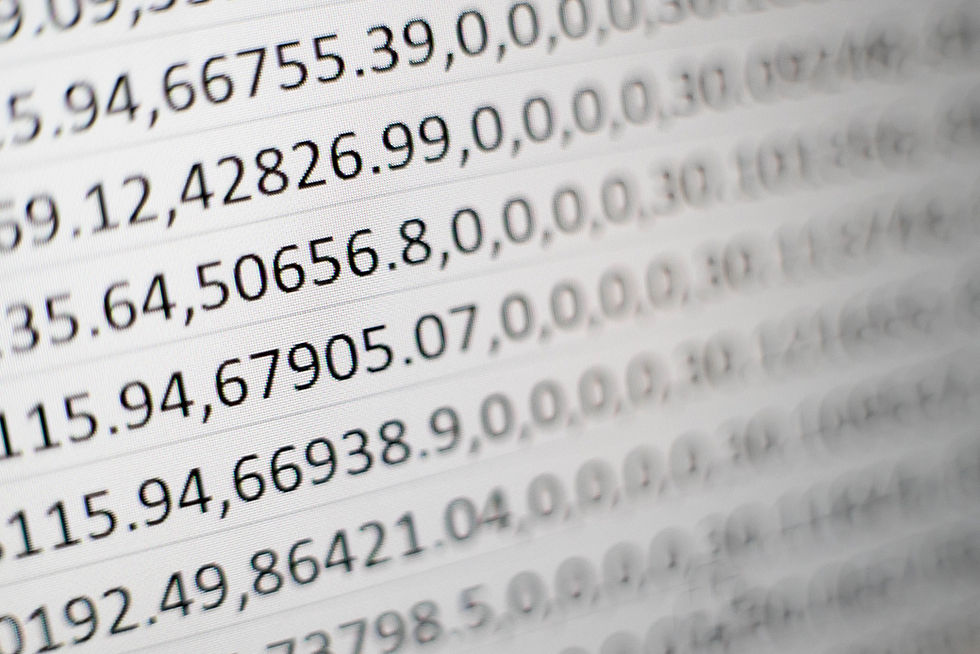Transforming Industrial Facilities: The Impact of Technology in Malaysia
- Sean Liew

- Nov 4, 2024
- 3 min read
In today's rapidly evolving industrial landscape, technology is playing a pivotal role in enhancing operational efficiency, safety, and sustainability. In Malaysia, modern industrial facilities are increasingly integrating advanced technologies to streamline processes, improve productivity, and meet the demands of a competitive market. This article explores the key technologies shaping industrial facilities in Malaysia and their transformative effects.

1. Automation and Robotics
Automation is revolutionizing manufacturing and logistics processes. Robotics, in particular, is being deployed across various industrial sectors, from assembly lines to warehousing.
Benefits:
Increased Efficiency: Robots can perform repetitive tasks with precision and speed, significantly reducing production time and minimizing errors.
Cost Reduction: While the initial investment in robotics can be substantial, the long-term savings in labor costs and increased output often justify the expenditure.
Examples in Malaysia:
Many Malaysian manufacturers are adopting robotic arms for assembly, welding, and packaging tasks, improving production rates and quality.
2. Internet of Things (IoT)
The Internet of Things (IoT) refers to the network of interconnected devices that communicate and share data. In industrial facilities, IoT technology is enhancing monitoring, control, and decision-making processes.
Applications:
Smart Sensors: These can monitor equipment performance in real-time, providing valuable insights into maintenance needs and potential failures before they occur.
Supply Chain Management: IoT devices help track inventory levels, optimize logistics, and enhance overall supply chain visibility.
Impact:
Businesses can achieve higher operational efficiency and reduce downtime, leading to increased productivity and profitability.
3. Data Analytics and Artificial Intelligence
The integration of data analytics and artificial intelligence (AI) is enabling companies to make data-driven decisions, enhancing operational strategies and processes.
Key Functions:
Predictive Maintenance: AI algorithms analyze data from machines to predict maintenance needs, reducing the risk of unexpected breakdowns and costly repairs.
Demand Forecasting: Data analytics helps companies anticipate market demand, allowing for better inventory management and resource allocation.
Advantages:
By leveraging data analytics, Malaysian industries can optimize their operations and respond swiftly to market changes.
4. Advanced Manufacturing Technologies
Advanced manufacturing technologies, including additive manufacturing (3D printing) and computer-aided design (CAD), are reshaping the production landscape.
Highlights:
Customization: 3D printing allows for the rapid prototyping of customized products, meeting specific customer needs without the delays associated with traditional manufacturing.
Reduced Waste: These technologies enable more efficient use of materials, minimizing waste and reducing costs.
Malaysian Context:
Various sectors, from automotive to aerospace, are embracing advanced manufacturing to improve design capabilities and production flexibility.
5. Sustainability through Technology
Technological advancements are also playing a crucial role in promoting sustainability in industrial facilities.
Green Technologies:
Energy Management Systems: These systems monitor energy usage and optimize consumption, helping companies reduce their carbon footprint.
Renewable Energy Integration: Many facilities are incorporating solar panels and other renewable energy sources to power operations, contributing to Malaysia’s sustainability goals.
Benefits:
Embracing green technologies not only enhances environmental responsibility but can also lead to cost savings in the long run.
6. Cybersecurity in Industrial Operations
As technology adoption increases, so does the need for robust cybersecurity measures to protect sensitive data and systems from cyber threats.
Importance:
Industrial facilities must invest in cybersecurity protocols to safeguard their operations and maintain business continuity.
Strategies:
Regular security audits, employee training, and implementing advanced security technologies are crucial steps in building a resilient industrial operation.
Conclusion
The integration of technology in modern industrial facilities in Malaysia is transforming the sector, driving efficiency, innovation, and sustainability. From automation and IoT to data analytics and advanced manufacturing, these technologies are reshaping how businesses operate and compete. As Malaysia continues to embrace technological advancements, industries that leverage these tools will be better positioned to thrive in an increasingly dynamic global market. By investing in technology, Malaysian industrial facilities can not only enhance productivity but also contribute to a more sustainable future.
Sean Liew
+6013-999 6666



Comments